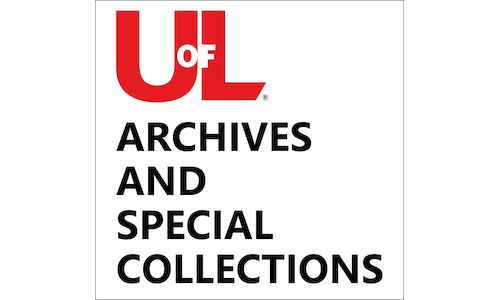Oral History Center: African American oral history collection

Interviews (available as audio files and transcriptions), mostly conducted in the late 1970s, that document the many aspects of life in Louisville, particularly as experienced by African Americans.
More About This Collection
Contributor to Resource
University of Louisville. Libraries
Date of Original
1970/1979
Subject
Civil rights--Kentucky--Louisville
Civil rights movements--Kentucky--Louisville
African Americans--Kentucky--Louisville
African Americans--Civil rights--Kentucky--Louisville
Louisville (Ky.)--Race relations--History--20th century
Race relations
Segregation--Kentucky--Louisville
African Americans--Segregation--Kentucky--Louisville
Race discrimination--Kentucky--Louisville
African American civil rights workers--Kentucky--Louisville
Civil rights workers--Kentucky--Louisville
Civil rights demonstrations--Kentucky--Louisville
Location
United States, Kentucky, Jefferson County, Louisville, 38.25424, -85.75941
Medium
sound recordings
transcripts
oral histories (literary works)
Type
Sound
Description
The Oral History Center at the University of Louisville has long sought to aid in the documentation of the history of Louisville's African American community. This effort was bolstered in the 1970s by funding from the Kentucky Oral History Commission, which supported a number of the interviews included in this first online offering. The African American Oral History Collection includes interviews conducted as part of projects designed to document particular aspects of Louisville's history and/or important local institutions, such as the Red Cross (Community) Hospital and the Louisville Municipal College, as well as projects that sought to document African American life more generally. Most of the interviews were conducted in the late 1970s.
Taken as a group, these interviews were conducted in order to document the many aspects of life in Louisville, particularly as experienced by African Americans. Businessmen, educators, politicians, doctors, historians, musicians, and other civic leaders of various kinds, as well as regular folks, were interviewed. There are interviews with a small number of white people who connected with the black community in important ways. Some interviews are brief, lasting 30 minutes or less; others are more extensive, covering several interview sessions and lasting four or more hours. The interviewees talk about their parents, their upbringing (often outside Louisville), their experiences in school, their careers, and their achievements. They discuss everyday life as well as the big events in the history they lived. The interviewees offer their own perspective on events, and while there are many areas of agreement, there are events that they each remember in their own ways.
The Civil Rights Digital Library received support from a National Leadership Grant for Libraries awarded to the University of Georgia by the Institute of Museum and Library Services for the aggregation and enhancement of partner metadata.
Contributing Institution
University of Louisville. Libraries. Archives and Special Collections
